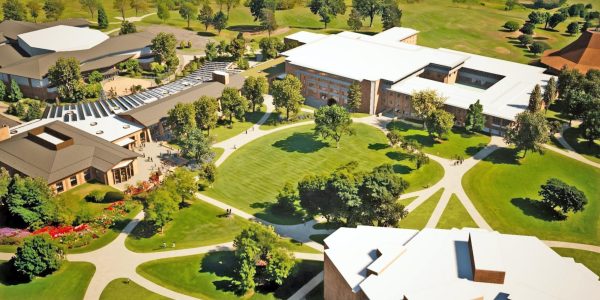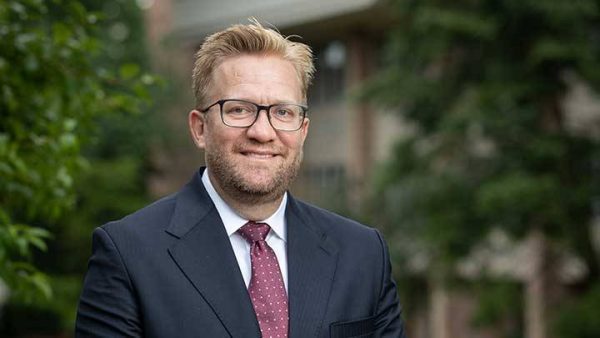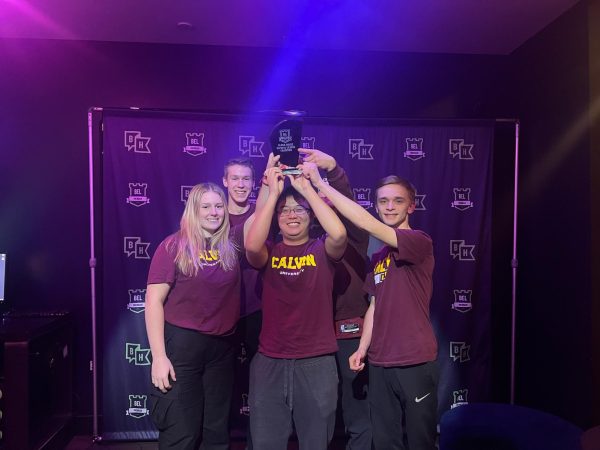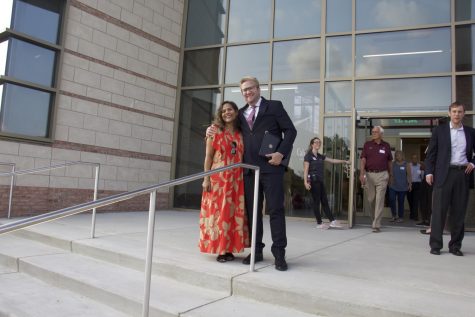University will shift to a new, revised English curriculum fall 2021

The English department is combining its three majors into one major with multiple concentrations starting fall 2021.
In November 2020, the English department completed their plan to change the current English curriculum. The new, revised curriculum will be effective starting fall 2021.
The English department last revised its curriculum in 2010. That revision split the single major into three separate majors ― linguistics, literature, and writing. The current revision is once again combining these three separate majors into one major, so that courses will be grouped by concentration rather than by major. Students can specialize in more than one concentration if they so choose.
Additionally, some course numbers, titles and content have changed. For instance, ENGL 330 Hermeneutics will become ENGL 290 Ways of Reading. A few new courses have been added as well. ENGL 368 Writing for Children and Young Adults is one example.
The English department expects that the altered curriculum will accomplish multiple goals, such as aligning the curriculum better with the new core, providing more staffing flexibility, reducing the overall number of English courses, and helping students by creating a more intuitive, transfer-friendly, and flexible English experience.
Karen Saupe, English department chair and director of the Rhetoric Center, believes that more overlap between linguistics, literature, and writing will foster a stronger community among English students and help them strengthen their studies and elevate their skills.
“The reality is that writing majors need to read a lot and pay attention to how language works; literature majors have a richer experience of literature when they study language and develop their own writing skills, and linguistics students understand language more fully when they encounter it in multiple dimensions,” she said.
The new English major has three introductory courses common to all the concentrations: ENGL 260 The Craft of Writing, ENGL 270 Introduction to Linguistics, and ENGL 290 Ways of Reading. From there, students can choose to concentrate in linguistics, literature, or writing, or select a general concentration that incorporates all of them. There will also be four english minors in these categories.
The linguistics concentration will require six foundational linguistics courses plus one particular sub-specialization in either language, english as a second language (ESL), computer science, speech pathology and audiology (SPAUD), or literature and writing. The sub-specialization will enable majors to apply their linguistic knowledge in a practical manner.
The literature concentration will contain ten literature courses. The new literature courses will be grouped into broad categories with an additional title attached. Students can repeat courses within a category. For example, a student could take both Advanced Studies in a Major Author: Milton and Advanced Studies in a Major Author: Shakespeare.
The writing concentration will feature two creative writing courses, two professional writing courses, three literature courses, and three electives, with one being an additional writing course.
The general concentration will ask students to complete a second course in each of the other three categories, plus seven more english courses of their choice.
Despite the significant changes, the new curriculum will retain elements from the old curriculum. The major still includes a mandatory experiential learning element in the form of an internship or honors thesis, as well as a senior seminar “to help majors look beyond college to think about how their major will continue to shape their lives,” according to Saupe.
Prospective majors and current students interested in the new curriculum are encouraged to visit the English department office in the Covenant Fine Arts Center or contact Saupe for more information.











Natsun Eisen '14 • Mar 17, 2021 at 11:34 pm
This makes a lot of sense. The linguistics major never really constituted an actual linguistics program, so much as an English linguistics concentration. Without specific courses in phonology, etc, students who completed the current major don’t even meet the prerequisites for many linguistics grad programs.
Might as well just call it what it always has been: a linguistics concentration for an English major.